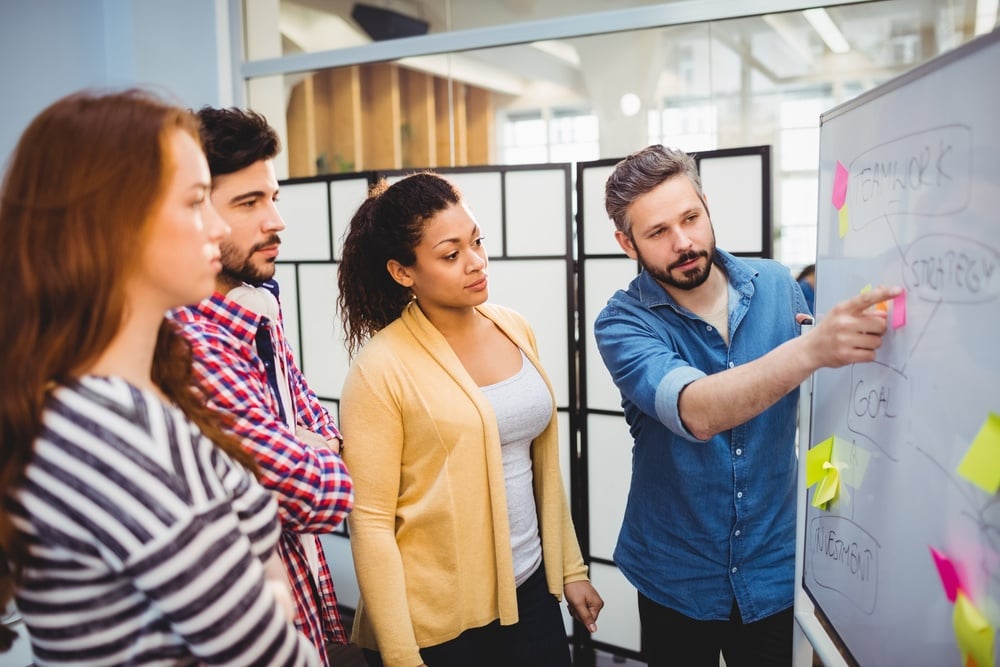4 Multicultural Content Marketing Trends to Watch in 2017

Happy New Year everyone. Right alongside the traditional rights of January (the broken resolutions and the cheesy income tax preparation commercial) is the annual industry prediction report. No industry adopts this process more than marketing, specifically digital marketing. With so much emphasis on key performance indicators, benchmarks and return on investment, experts believe that the data can help us accurately predict what happens next. Marketers will then use this information to predict trends and stay ahead of the curve. However, not much has been written about multicultural marketing trends.
I have made it a regular practice to stand in the gap, partly because the interpretation of this data doesn't always drill down along demographic lines but also because I find it rather intriguing. While digital marketers have moved to recognizing the role of multicultural relevance in their content strategy, they're hasn't been a concerted effort as yet to build said strategy around this emerging populous. But as the Jamaican's say, "Soon Come."
READ "TOP 7 HISPANIC MARKETING TRENDS TO WATCH"
The reality is multiculturals consume content in different, and at times, unorthodox ways. Often small changes in media, unrelated to the content itself, create hurdles or open doors of opportunity for multicultural content consumption. Without a better understanding of how these changes will effect the audience, adversely or favorably, we can't effectively predict multicultural content marketing trends. A concerted effort to tracking multicultural consumer behavior and valuing qualitative data as much as quantitative, has helped us identify some predictive indicators. Thus, here are my top Multicultural Content Marketing Trends to Watch in 2017.
Focus on Governance & Accountability
2016 was a very interesting year. Instead of politics, the election cycle was dominated by allegations of foreign government sponsored hacking and the unexpected arrival of fake news disseminated by Internet robots or "bots" posing as political influencers. One particular candidate took the unprecedented step of circumventing the less supportive, traditional media outlets and going straight to the voters via late-night and oft-unhinged twitter rants. The internet became the wild, wild west of politics with little oversight and transparency.
With the slippery slope of blurred lines on the horizon, 2017 will see lawmakers tripping over themselves to propose legislation aimed at further defining internet governance and accountability. Apple's fight over a Federal District Court in California mandate that they unlock the iPhone of the San Bernadino gunman in February put Americans most coveted privacy and patriotism at odds. With Google's algorithms serving as a moving target for SEO specialist, we may see these issues end up on the steps of the Supreme Court before long.
While on the surface, this trend might not seem to affect Multicultural Content, the truth is Multicultural Americans, specifically Hispanics and African Americans are far more likely to get news and information from sources like YouTube and Instagram verses traditional outlets according to a Nielsen study. Additionally, African-Americans outpace all groups when consuming media through multi-platforms. Such laws and guidelines are disproportionaly more inclined to effect how these demographics prefer to consume media.
Multicultural Influencers Strike Back
While we often think of the internet as the frontier of open-sourced innovation, the truth is the tech conglomerates (Google, Apple, Facebook, Twitter, etc.) often absorb or devalue new innovative platforms by mirroring their technology or changing the very algorithms these start-ups build their code upon. Very rarely is the relationship symbiotic. For the users that bought into the start-ups, making them successful in the first place, it leaves them holding-the bag. These early adopting influencers pride themselves on discovery and even in the case of an acquisition, they rarely will stick around for the watered down, big box version of the technology.
In fact, in a global sense, according to Nielsen's Global New Product Innovation Survey, early adopting influencers are increasingly more multicultural. In fact more than half of the respondents of Asian, African/ Middle Eastern and Latin decent self identified as such. The recent deregulation of innovation trends have disproportionately effected these Multicultural influencers. In the past, their only recourse was to cancel or move on to the next discovery but for Big Tech, those threats fall on deaf ears. For influencers that rely on platforms supported by YouTube for instance, small changes cost them views, ad revenue and could jeopardize their livelihood they've built on these platforms.
2016 saw enough cases of such impropriety. As a result those affected, which are disproportionately multicultural influencers, have formed coalitions to investigate and combat these trends. For the same reason Governance and Accountability were mentioned above, in 2017 influencers will make their voices heard. They will demand that decision makers understand the ramifications of their actions.
Search Engines Rewarding More Diverse Content
That's right even search engines are buying into diversity. What Google, BING and others have realized is that the internet is becoming an over-crowded library of repetitious content. With decreasing attention spans and readers less willing to embrace long form content, search engines have begun rewarding content with greater value per word ratios. This concept of "content density" has become a buzz word among SEO specialist and in 2017 we will begin to see publishers adjust accordingly. Readers will continue to have their nugget size reads but walk away with more for their time spent.
This opens the door to "make content interesting again." Search engine spiders are getting smarter and more intuitive. They determining that filler content is no longer important to them and are thirsty for a fresher and denser prospective. We can expect that the experience that multicultural authors bring to the table will be a welcome addition to the library.
Social Goes Live & Direct For A Renewed Purpose
It is my ultimate prediction that 2017 will bring the tipping point of the multicultural voice. We saw a lot of tension in the last year directed from and at the ethnic community. We have seen everyone from athletes to celebrities taking to the internet, risking endorsements and fans to share their feelings and frustrations. Average Americans are producing content in the form of op-eds, blog journalism and even live broadcasts political protests and in one case, from the scene of a police involved shooting of a loved one.
Social intimacy is a thing. While the last 10 years was about technology creating a platform for people to speak the next 10 will be a fight to decide who's a lot to say what and who should and can be impacted by it. The multicultural influencer wants their voice heard, not curated and deliberated upon by the powers-that-be on whether its worthy of inclusion in a friends feed. They want their internet to be about real-time content experiences. Live social networks, like Watch Me Work, and Live.ly have forced platforms like Instagram and Facebook to launch live broadcasting . For the multicultural user with something to say Live is less about being vain or "look-at-me" but more about collectively sharing in that moment with the community in real time and as their soon-to-be President showed 'em, circumventing censorship and going straight to the people.
There is a lot to look out for in the coming year. The social climate of the last 12 months has laid a fertile groundwork for an interesting year. Government, politics, technology platforms and users will begin to flex their muscles. In the end, this year will be characterized less by its growth and more by its fight.
Share this
You May Also Like
These Related Stories

7 Multicultural Marketing Terms Every Marketer Must Know

Tactics a Multicultural Advertising Agency Can Use



